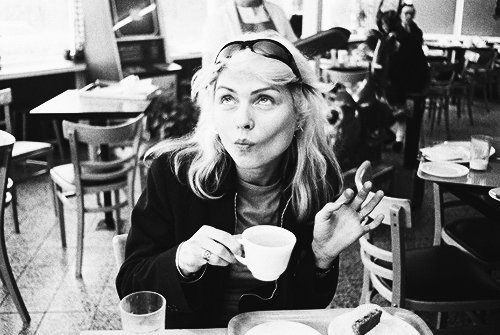
ONE WAY OR ANOTHER
I start with Debbie Harry, simply because I particularly like this photo and I hope it can be an inspiration for you too.
I would skip the details of his life more strictly personal and I would speak directly of the mythical times of the CBGB after the meeting with Chris Stein and the creation of Blondie who have characterized the scene since 1974 for a long period full of successes.
Without a doubt, I mention Call Me for the collaboration with Giorgio Moroder, which has become an iconic soundtrack and more generally a piece that evokes an emotional flashback at every listening: new wave, disco music, dance rock.
Debbie stayed with Chris for fifteen years during which they also fought a serious illness together.
A wonderful Heart of glass, but at the same time a strong heart, this is the first thought I have of all about her.
A woman who at fifty-three continues marking history with a first place in the chart that enters Guinness.
A woman who knows how to cross past present and future without distinction, like her portrait made by Andy Wharol with the Amiga 1000 computer.
A woman also celebrated in the Rock and Roll Hall of Fame, who has been able to become a symbol with her ruffled hair and an uncalculated look but framed by her determination.
And his One way or another, deliberately covered with joy as a “survival mechanism”, resounds sadly current, making us reflect once again on the fact that over time, we persist in not treasuring experiences and that we cannot learn from mistakes, getting worse.
Anyway, let’s start from her smile and her intent to restore lightness and take an example, one way or another …



 Hi I'm Claudia and this is KCDC.
Hi I'm Claudia and this is KCDC.





LATEST COMMENTS